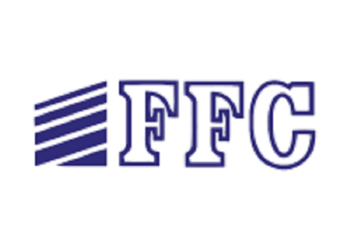Islamabad: The Federal Board of Revenue (FBR) has launched an extensive audit into the large-scale alteration of Goods Declaration (GD) forms submitted online by importers. This move comes after a significant financial discrepancy was discovered, prompting authorities to take immediate action.
Uncovering the Tampering of Goods Declaration Forms
According to official sources, over 10,000 Goods Declaration forms have been altered post-submission by importers. This fraudulent activity has resulted in an estimated loss exceeding Rs 14.2 million to the national exchequer. The findings have raised serious concerns regarding the integrity and security of the online goods declaration system, which is designed to ensure transparency in trade transactions.
A major question now being investigated is how such alterations were possible once all details regarding the importing company, clearing agents, imported goods, and applicable duties and taxes had already been submitted online. The loophole in the system has led to a thorough scrutiny of digital records and transactions.
FBR Orders Post-Clearance Audit
Following an investigative report by The Express Tribune, which brought these irregularities to light, the FBR has issued orders for a post-clearance audit of transshipment Goods Declaration forms. This audit aims to identify the extent of the fraud and determine the individuals or entities involved in the tampering process.
Sources suggest that this tampering has been ongoing for several years, with evidence traced back through Goods Declaration log edits. The FBR chairman has ordered an immediate inquiry; however, there are concerns that certain officers within the department may attempt to suppress the matter due to their alleged involvement.
Role of Pakistan Single Window in the Scandal
The Pakistan Single Window (PSW), a digital trade facilitation system aimed at streamlining import-export processes, has also come under scrutiny. Investigations suggest that certain corrupt officers within PSW were complicit in these irregularities.
How the Tampering Was Executed
According to official documents reviewed by The Express Tribune, the fraudulent activities primarily involved modifying details and quantity figures of imported goods rather than altering the Harmonized System (HS) codes—the internationally standardized system used to classify traded products. This manipulation enabled importers to underreport the quantity of their imported goods, thus avoiding significant tax and duty payments.
A spokesperson from the FBR confirmed the fraud, stating that HS codes and quantities were tampered with in goods declarations filed at various dry ports across the country, including:
- Karachi Port (original declaration point)
- Peshawar, Multan, Lahore, and Faisalabad (destination ports)
Links to a Broader Smuggling and Corruption Network
This revelation is the second major scandal to shake Pakistan’s customs and trade regulations. Earlier, authorities uncovered a nexus between corrupt customs officers and smugglers, implicating at least 78 officials in fraudulent activities.
Sources within the FBR believe that this latest investigation could expose a wider network of collusion between importers, clearing agents, and customs officials, and possibly even extend beyond Pakistan’s borders. If fully investigated, it could dismantle long-standing corruption rings operating within the country’s import-export sector.
FBR’s Response and Next Steps
The FBR has officially labeled this tampering as a system glitch, but it has also emphasized that the impact on revenue must be thoroughly investigated. As part of its efforts to recover lost revenue and prevent future fraud, the FBR has launched an initial audit covering financial years 2022, 2023, and 2024. However, if further discrepancies are found, the audit may extend back to 2015 to uncover the full extent of the malpractice.
Potential Consequences for Those Involved
- Legal Action: Importers found guilty of altering goods declarations could face severe financial penalties and legal repercussions under Pakistan’s customs laws.
- Departmental Inquiries: Customs officers implicated in the scandal may face suspensions, firings, or criminal charges if their involvement in facilitating the fraud is proven.
- Reforms in Digital Trade Systems: The FBR is likely to introduce stricter monitoring and security protocols in the Pakistan Single Window system to prevent future manipulation.
Public and Industry Reactions
The business community and trade associations have expressed concern over the implications of this scandal. While many support the FBR’s audit, some fear increased scrutiny could lead to delays in legitimate trade transactions. Transparency advocates, on the other hand, have called for stronger oversight mechanisms to ensure the integrity of Pakistan’s trade and customs system.
Conclusion
The large-scale alteration of online Goods Declaration forms has exposed critical flaws in Pakistan’s customs clearance system. The FBR’s post-clearance audit and broader investigation into digital trade fraud will be key in ensuring that import duties and taxes are accurately collected, preventing future financial losses to the national treasury.
With an ongoing audit and potential legal action on the horizon, this case could serve as a turning point in Pakistan’s fight against trade fraud and corruption, setting a precedent for stronger regulatory frameworks in the future.

























